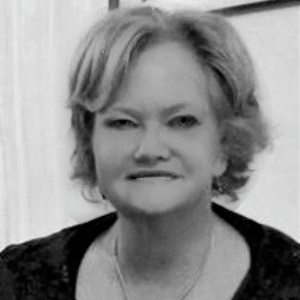The Girl from Bologna
(Girls from the Italian Resistance)
By Siobhan Daiko
Publication Date: 29th June 2022
Publisher: Asolando Books
Page Length: 300 Pages
Genre: 20th Century Historical Fiction
Bologna, Italy, 1944, and the streets are crawling with German soldiers. Nineteen-year-old Leila Venturi is shocked into joining the Resistance after her beloved best friend Rebecca, the daughter of a prominent Jewish businessman, is ruthlessly deported to a concentration camp.
In February 1981, exchange student Rhiannon Hughes arrives in Bologna to study at the university. There, she rents a room from Leila, who is now middle-aged and infirm. Leila’s nephew, Gianluca, offers to show Rhiannon around but Leila warns her off him.
Soon Rhiannon finds herself being drawn into a web of intrigue. What is Gianluca’s interest in a far-right group? And how is the nefarious head of this group connected to Leila? As dark secrets emerge from the past, Rhiannon is faced with a terrible choice. Will she take her courage into both hands and risk everything?
An evocative, compelling read, “The Girl from Bologna” is a story of love lost, daring exploits, and heart wrenching redemption.
Keeping my head down so as not to draw attention to myself, I made my way past the German tank stationed next to the Basilica of San Petronio. I was in a hurry to get home after spending the morning at the library and didn’t want to waste time having my identity documents checked. I stopped. Listened. A distant rumble followed by the ominous drone of aircraft engines echoed in my ears. The terrifying noise grew louder, and I imagined a swarm of giant angry hornets hellbent on destruction. Dread squeezing my chest, I risked a quick glance upwards. Heavy cloud cover billowed over Bologna; there was no sign of any planes.
But my heart skittered as a ricochet of explosions reverberated from the direction of the railway marshalling yards. Plumes of thick, black smoke spiralled into the sky.
Why hadn’t there been any warning sirens like there had been when the Americans bombed the railway two months ago? Not that those alarms had done much good; they’d been set off too late, just as the aircraft had come into sight. Many of the bombs had fallen not only on the sta-tion but on the historic city centre, damaging buildings and killing innocent civilians who hadn’t managed to reach safety.
Oh, dear God. I’d hoped against hope that our King’s armistice with the Allies would have put an end to such attacks. Except, the Wehrmacht had occupied Bologna and were using it as a transportation hub, and I feared we’d become a prime target again.
The nearest shelter was in Strada Maggiore, but my best friend Rebecca’s family palazzo was even closer. The Allies’ bombers were clearly visible now, flying wingtip to wingtip in a V formation, like enormous silver geese migrating across the urban skies.
I raced into Piazza del Nettuno, my feet pounding on the smooth paving stones. I tore past the fountain then headed along Rizzoli Street towards the two iconic medieval leaning towers.
Would I reach safety before a stray bomb dropped on me? Perspiration beaded my brow and my chest ached.
At the top of Zamboni Street, I arrived at a nondescript wooden door. I rang the bell and waited impatiently, hopping from one foot to the other until Giulia, the Matatias’ housekeeper, let me in.
‘Hurry!’ she said in Bolognese dialect. She grabbed my hand and pulled me towards a metal and stained-glass gate, which opened onto a square garden. Bologna had been built around its hidden spaces, but the Matatias’ was even more impressive than most.
I sprinted after Giulia, following the gravel path skirting ancient trees and shrub-filled borders. A three-storey coral-coloured palazzo stood before me. ‘Everyone has gone down to the cellar,’ Giulia’s voice shrilled.
I found Rebecca huddled on a dilapidated sofa next to her mother. ‘Ciao,’ she said. ‘What are you doing here?’
I explained quickly, took in her doleful expression, and gave her a hug.
Rebecca was the same age as me, nearly nineteen, and we were about to start our Italian litera-ture studies at Alma Mater Studiorum, Bologna’s prestigious university, the oldest in the world. We’d been friends since early childhood. Rebecca’s family was of Jewish origin but had been baptised as Roman Catholics to avoid persecution. She was an only child, the daughter of a wealthy industrialist father and a mother who stayed at home. I loved her like I would have loved a sister if I’d had one. We could have been sisters, in fact; we were quite beautiful then, had almost identical, amber-coloured eyes, high cheekbones, bow-shaped lips and long brunette hair.
I sat next to Rebecca while Giulia joined the rest the staff—the housemaid, cook, and gardener, crouched on bales of straw beside a coal heap.
The thunderous echo of the bombardment came through the ceiling of the cellar, making my ears ring. Conversation was impossible for the awful noise, so I lost myself in thought.
I remembered hearing the shocking news that German tanks had rolled into Bologna the day after our prime minister had announced that Italy had switched sides in the war. Nazi officials hung a swastika flag from the façade of the Hotel Baglioni—the best in the city—and had commandeered part of the first floor and a large lounge to the right of the lobby, which they converted into their administrative headquarters. Not one Italian authority had turned up for a formal handover. With total political chaos there weren’t any Italian authorities at hand.
Over the next several days, the Wehrmacht put their military occupation into action. Repression and intimidation began immediately with the confiscation of automobiles, limits to bicycle transport, a curfew from eleven pm to four am, and restrictions on gatherings of more than three people. Worst of all, the Nazis set up transit camps for deportations and slave labour, in-terning deserters from the Italian army—those they hadn’t already loaded onto cattle trucks and transported to Germany for their nefarious needs.
It was all too horrible, I thought, snuggling against Rebecca while poor Bologna was being bombed to bits. I prayed fervently that my mother, father, and brother were safe.
Gradually, the reverberation of explosions lessened and then finally came to a halt.
‘We can go upstairs,’ Rebecca said in a trembly voice.
We climbed the spiral staircase to the piano nobile. ‘Please may I use your phone?’ I asked.
‘Of course.’ Signora Matatia brushed a stray dark curl from her pale forehead. ‘You must be worried about your family, dear.’
With trembling fingers I picked up the receiver and dialled home.
But the lines were down, and I couldn’t get through.
‘I should go,’ I said. ‘Thank you for sheltering me.’
Rebecca saw me to the street door. ‘Send a message if you can. Let us know everyone is safe.’
‘I’ll try.’ I kissed her on both cheeks. ‘Daniele will be fine. I feel it in my bones.’
Rebecca had a crush on Dani, but my brother was ten years older than the two of us. A hard-working doctor, he didn’t have much time for women, and certainly not for his little sister’s best friend.
‘I hope Paolo is alright,’ Rebecca responded. Paolo was my sweetheart, a medical student at the university.
‘He’ll have found shelter, I’m sure.’ But I was worried. I worried about him continuously. He’d been a secret member of the Partito d’Azione clandestine political party for the past six months, attending covert antifascist meetings alongside his friends, and I lived in constant fear of him being arrested. My gangly boy was terribly serious about everything; I just hoped his earnest attitude wouldn’t lead to his death.
I stepped outside and my heart dropped. An acrid smell stung my nostrils. A desperate, dark-haired man was clawing through the brick rubble of a bombed building. A thin woman stood next to the man, weeping, cradling a baby whose face was so white he or she was obviously dead. Other crying people had gathered around a girl of about nine or ten who’d lost an arm. She lay silently bleeding to death before me in the street, her eyes glazed open. I’d never seen anyone die before. Nausea built in my throat and hot tears streamed down my cheeks. I stepped forward to help, but a policeman turned me away.
Choking on smoke and dust, I stood rooted to the spot. Fire raged in buildings further down the road, but the two stone towers ahead appeared intact. They’d endured since the twelfth cen-tury—a time when Bologna used to resemble a mediaeval Manhattan—it would take more than carpet bombing to destroy them now, I hoped.
Oh, God, how I prayed Mamma, Papà, and Dani were safe. Worry spurred me into action and, sobbing, I ran home.
This novel is FREE to read with #KindleUnlimited subscription
Siobhan Daiko is a British historical fiction author. A lover of all things Italian, she lives in the Veneto region of northern Italy with her husband, a Havanese dog and two rescued cats. After a life of romance and adventure in Hong Kong, Australia and the UK, Siobhan now spends her time indulging her love of writing and enjoying her life near Venice.
Social Media Links:
Website • Twitter • Facebook • LinkedIn • Instagram • Pinterest • BookBub • Amazon Author Page • Goodreads


%20(1).jpg)





Thank you!
ReplyDelete